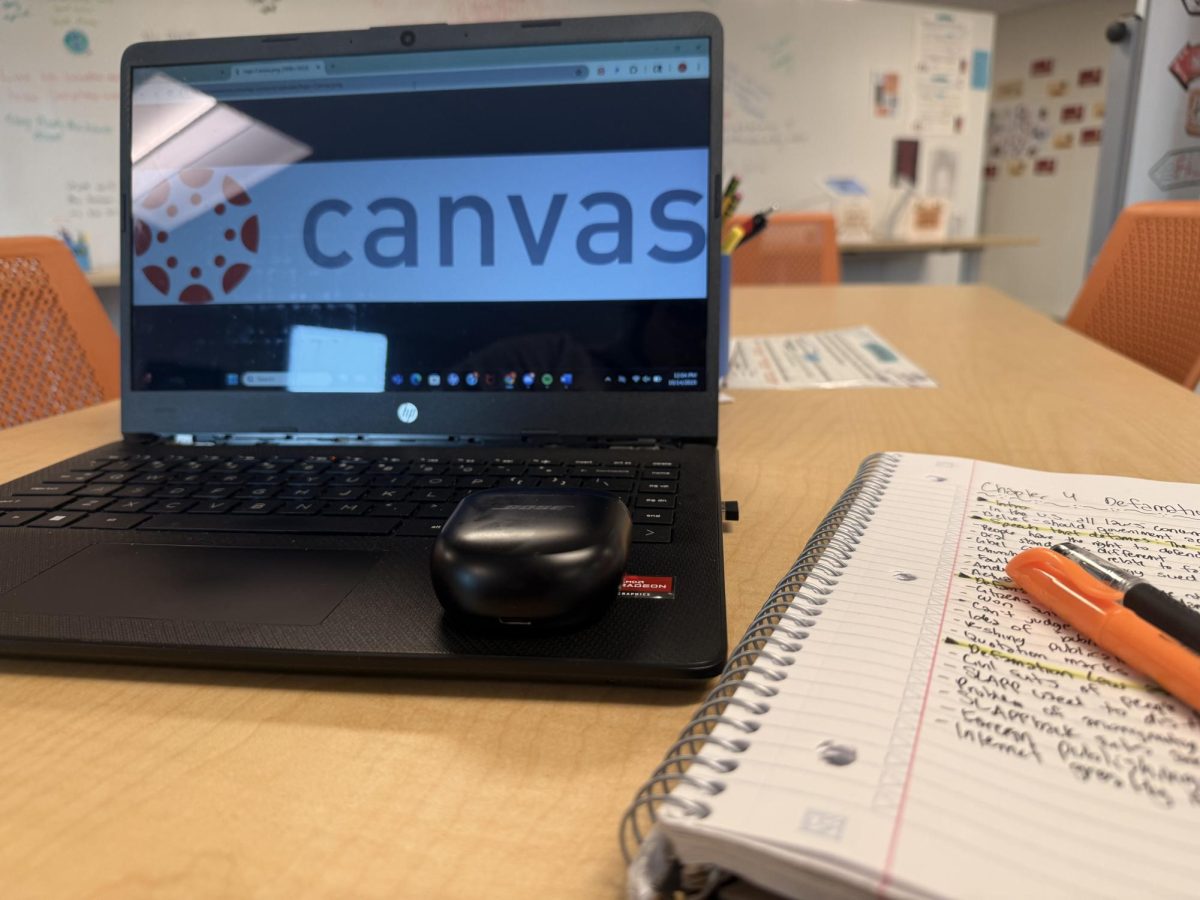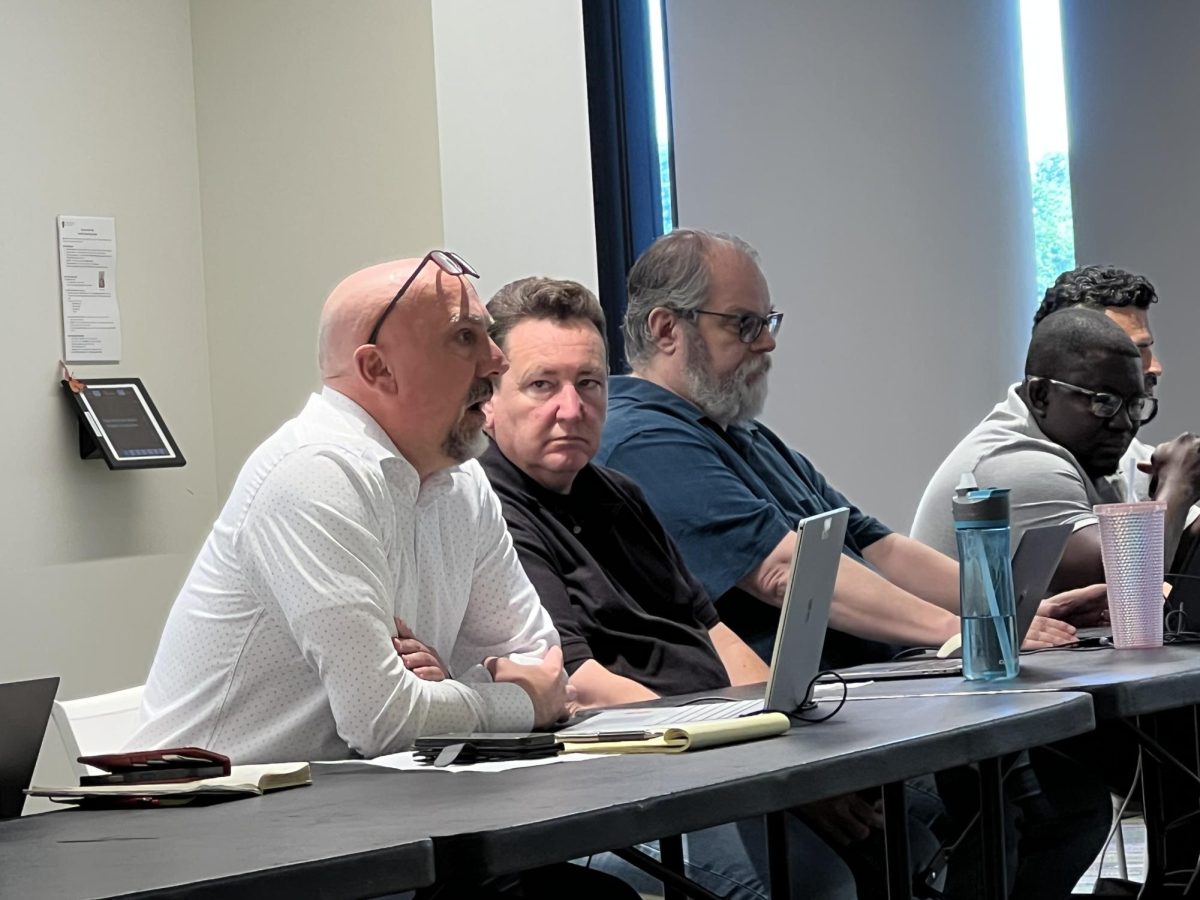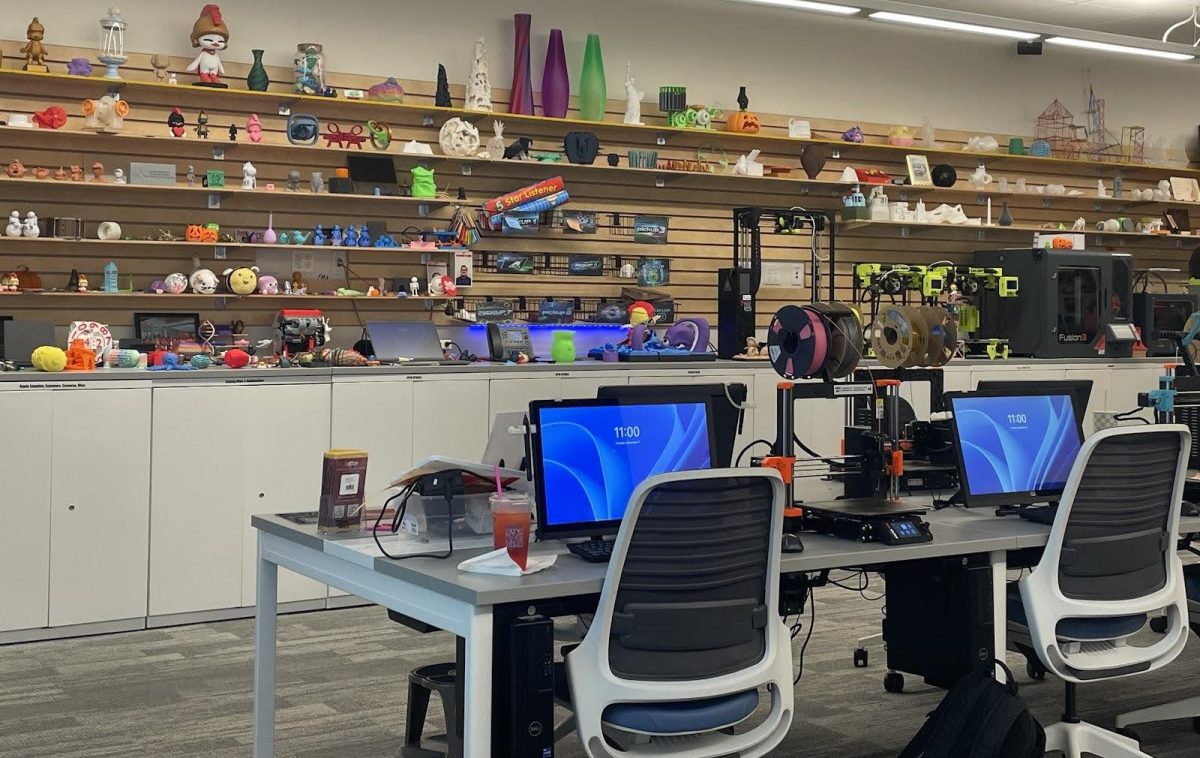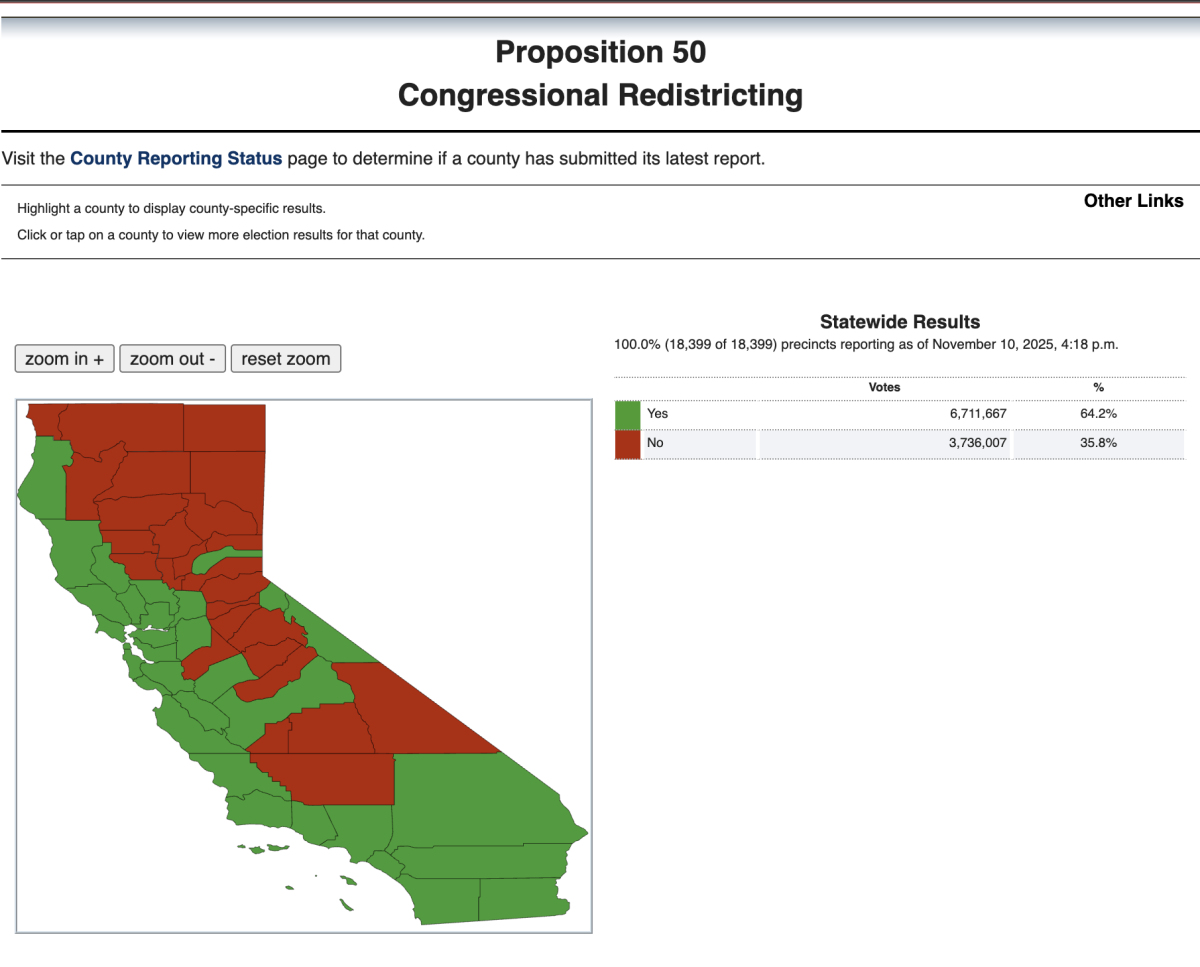Today’s open forum revived a long standing debate over Skills for Student Success and Life-Long Learning. Spring 2025 saw the academic senate pass new baccalaureate degree requirements.
The new baccalaureate degree requirements in Student Success and Life-Long Learning ignited senator’s disappointment in the lack of shared governance and keeping faculty updated as it came to light that new students from this fall and next fall semester would not be subject to these new degree requirements.
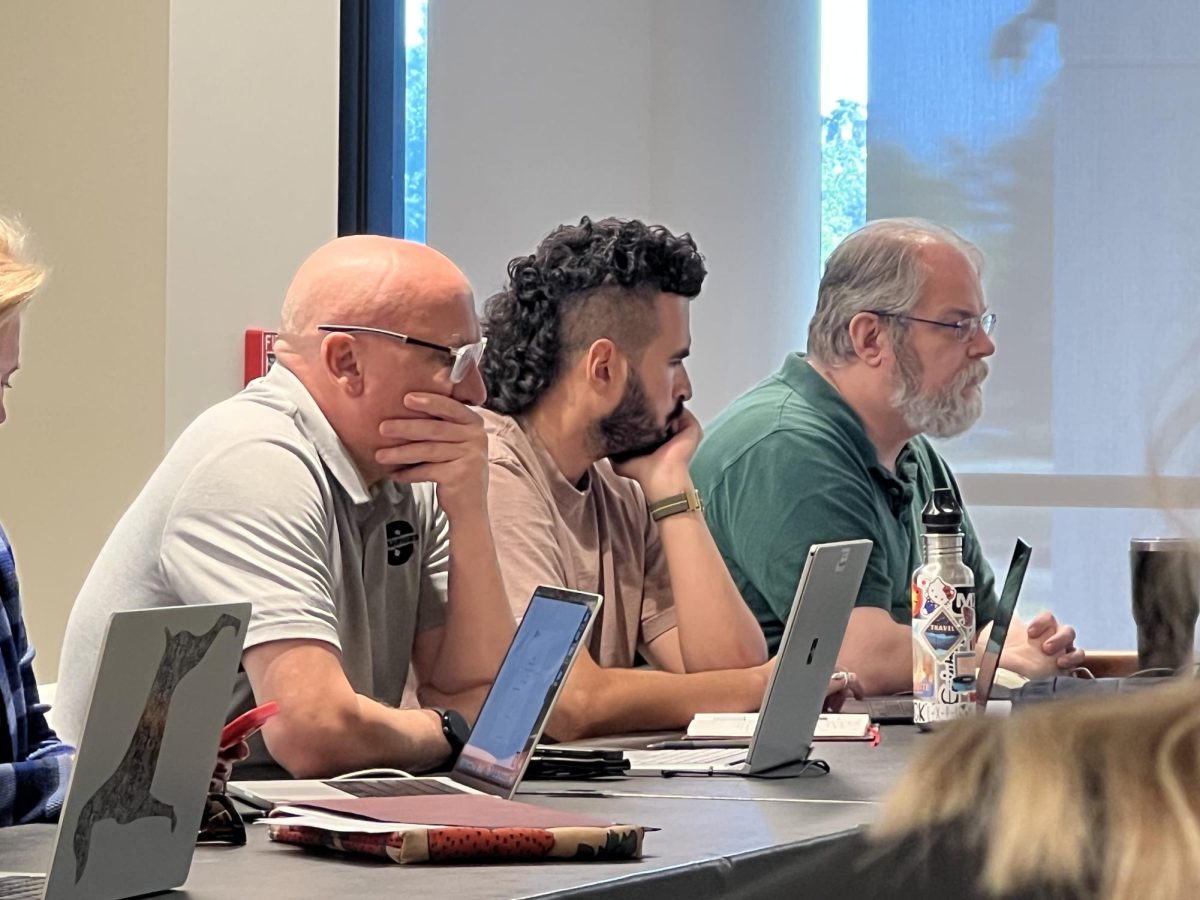
Senator Marina Gerson felt upset by this issue, leading her to feel the need to speak and make her voice heard.
“I don’t wish to speak but I feel like I must,” Gerson said. “So I want to know what’s going on, where’s the shared governance that we’re talking about all the time?”
The Vice President for Academic Affairs Dr. Stuart Wooley was present at the meeting and was able to share the academic affairs thought process behind this decision.
“Should have gotten it there sooner and I’ll own that,” Wooley said.
In response to Wooley’s initial statement, Gerson expressed her appreciation for the clarification, but disappointment in the lack of communication between academic affairs and faculty.
“Just because you have the permission to push the button does not mean you have the authority to push the button,” Gerson stated.
Senator Dana Nakano elaborated on the topic of shared governance and how disappointing it is for the faculty to be excluded from these discussions.
“I guess there is a little bit of added frustration because this is coming on the heels of what we were just discussing earlier in this meeting, which is the STANBooks issue,” he stated. “In which shared governance was not honored in that process either.”
Wooley explained that the reason they are not requiring students this fall or next fall to follow these new requirements is because of a lack of courses available.
“One, we don’t have any humanities courses in Life-Long skills, and we probably don’t have enough courses for all students to take that you need in those sections,” he said.
As for addressing the shared governance concerns, Wooley shared how he talked to Speaker of the Senate Arya Alami about this issue and owns up to this lack of shared governance.
“That’s on me and I’m repenting. We’re gonna talk about it on Thursday,” he said.
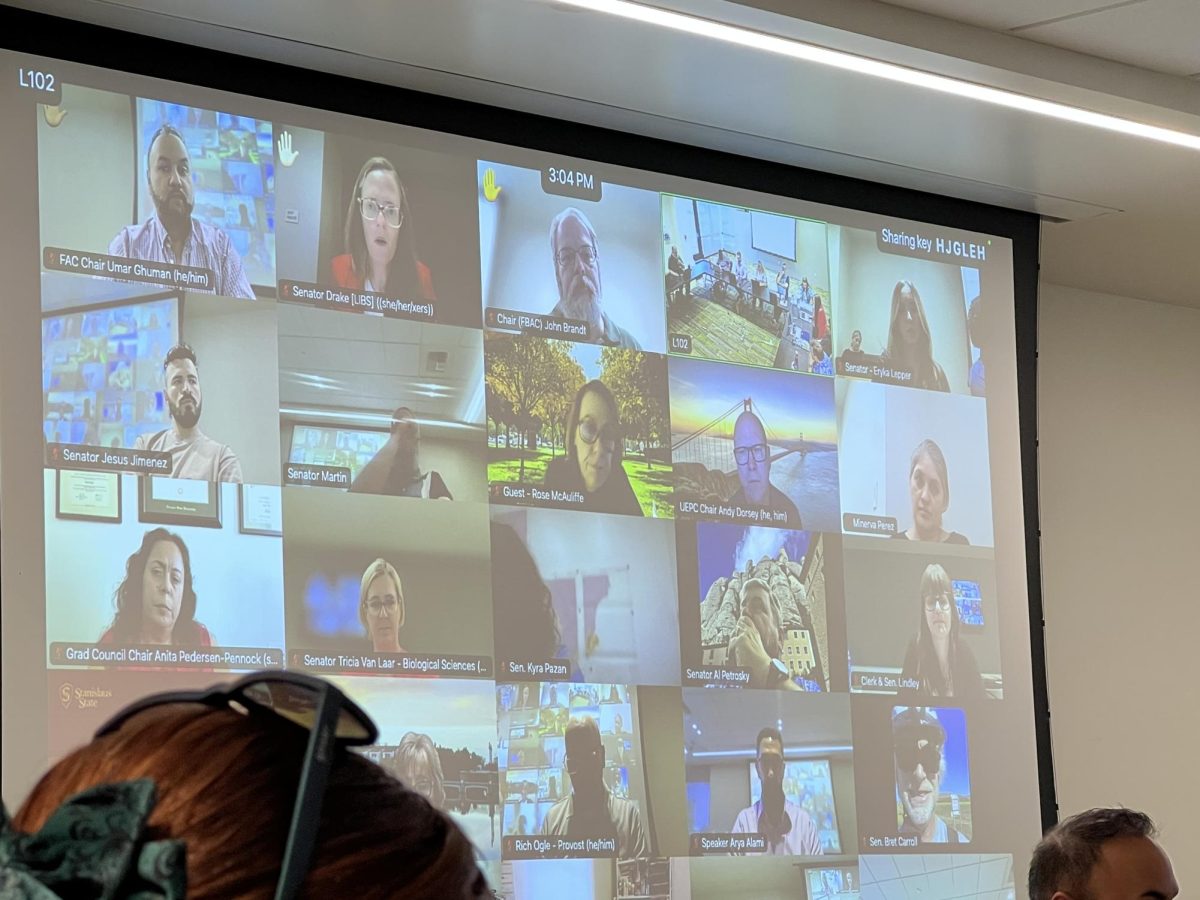
The rest of the meeting went according to schedule and was completed in full discussing the delay of STANbooks, the discontinuation of the studio concentration for the Department of Art, as well as expressed confusion over scheduling at the Stockton campus.
STANBooks has officially been delayed until fall 2026. This delay comes after the negative feedback it received at the last academic senate meeting.
Since STANBooks is now delayed, a survey will be sent out to faculty, staff and students to see how they could determine what is accessible. Both Rose McAuliffe CFO and ASI will work to make sure faculty and students are being asked the right questions in this survey.
“Let’s put a pause on it. Let’s get a really good survey out,” McAuliffe said.
CFA President Dave Colnic asked the senate two questions about STANBooks.
“I heard we’re doing a survey,” he said. “What I haven’t heard is whether we are willing to adapt the program that we have.”
He ends his statement with a question, “One is to move for redesign, and two is it a done deal we’re doing it in the fall?”
The first reading item for this meeting was centered around the discussion of the discontinuation of the studio art concentration.
Their reasoning behind this decision has to do with the fact that before fall 2019 the art major had an art history and studio concentration.
But in fall 2019 art history was elevated to a stand-alone major.
This led to the Department of Art consisting of an Art History B.A. and an Art B.A. However the formal process to discontinue the subprogram was not completed at that time, so the department is taking those steps now to complete the process.
Senator Artur Da Silva supported this item to discontinue the studio art concentration.
“We had a choice of concentration, and now with the formation of the art history major the B.A. became by default the concentration is a studio. So it’s just a redundancy on the language there, nothing more than that,” said Da Silva.
Upon approval of the discontinuation the formerly composed studio concentration will be retained as part of the core requirements for the Bachelor of Arts degree.
This will come back to the floor of the senate in a few weeks.

Speaker of the Senate Alami ended today’s meeting with a statement.
“I think this is what’s going to help make us great. It’s going to help us get through these sucky times. So, do I hear a motion to adjourn,” he said.





